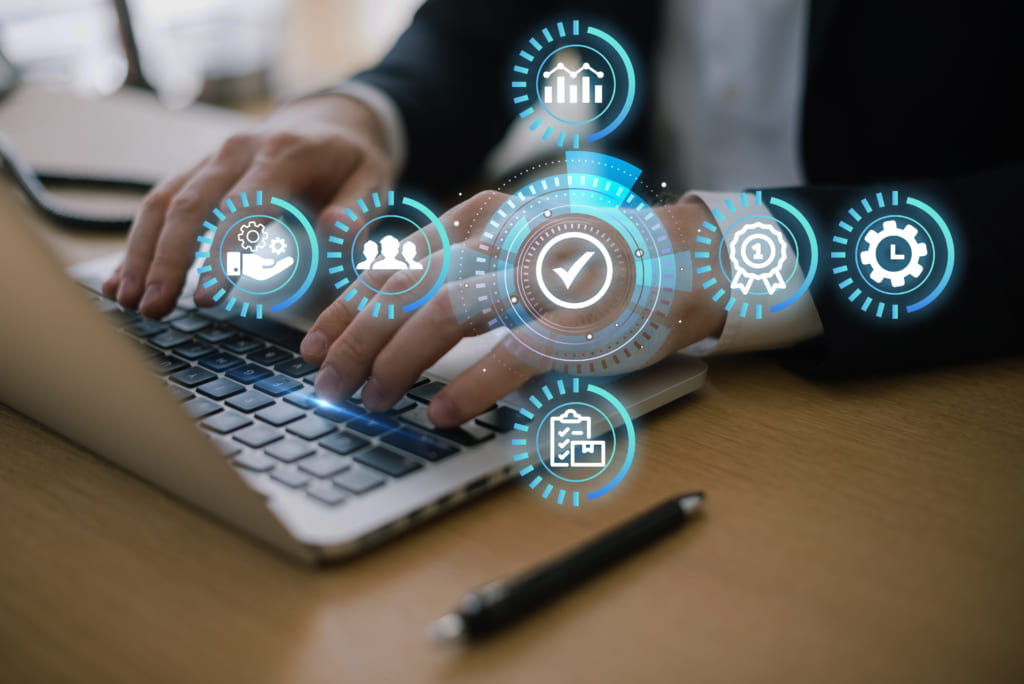Comparing CRM and ERP: Which solution should businesses choose?
What are CRM and ERP systems?
CRM (Customer Relationship Management) is customer relationship management software. Specifically, the software supports businesses in attracting potential customers and turning them into loyal clients. Therefore, CRM helps businesses perform various tasks such as collecting and storing customer information, automating sales services, analyzing and reporting, etc. ERP (Enterprise Resource Planning) is enterprise resource planning software. ERP consists of modules that help businesses manage HR, marketing, finance, and more. As a result, the software connects departments and manages the operational processes of the organization. See more: Digital Transformation Solutions for Businesses
Similarities between CRM and ERP
Both solutions feature sales automation, making business operations easier. Companies can set up automated processes for information management and customer care in both systems. CRM and ERP can also integrate with the back-end of e-commerce websites to store customer information. Additionally, both CRM and ERP help optimize Marketing and Sales activities. They offer features like management, distribution, analysis, and support for multiple marketing channels via email, SMS, and social media. Businesses can choose between paid, open-source, or cloud-based software depending on their needs.
The two solutions share many similarities, supporting easier management and operations for businesses
Differences between CRM and ERP
Usage goals
The main goal of CRM is to manage customer relationships by optimizing Marketing, Sales, and Customer Service activities. The software helps businesses manage and optimize operations from collecting, storing, and processing customer data to automating marketing, sales, and customer care, and analyzing customer-related data. This enables businesses to build strategies to reach potential customers and turn them into buyers. Meanwhile, ERP focuses on reallocating enterprise resources and supporting the management of various company operations, from marketing, sales, and customer care to HR, finance, inventory, production, etc. ERP enables data synchronization in a unified system, control and management of data, automation of internal processes, and reduced paperwork—thus optimizing enterprise-wide operations.
Features
CRM systems are divided into several task groups including:
- Sales: sales management, invoicing, automatic payment, inventory control, etc.
- Marketing: integration with email, SMS, and social media platforms; campaign performance analysis, etc.
- Customer service: storing and managing customer data, enhancing customer experience, automating customer support, etc.
Features of ERP include:
- Sales: creating and processing orders, online sales, multiple payment options, etc.
- Production process management: warehouse management, tracking goods status, product distribution, etc.
- Accounting & Finance: general ledger, financial reports, budget management, financial analysis, etc.
- Human Resource Management: storing employee data, timekeeping, task management and coordination, etc.
Regardless of the system, it must align with the business goals and operational plan
Management scope
CRM software manages customer-related activities from marketing, sales, to customer service. ERP software, on the other hand, manages all business operations—from HR, accounting and finance to production, sales, and inventory.
Management target
CRM primarily focuses on departments like sales, customer service, and marketing. It manages customer information, customer care services, and marketing campaigns. ERP has a broader scope, managing various departments in a business. For finance departments, it supports payroll, cash flow, etc. For HR, it handles employee management and recruitment. ERP can also manage projects and production processes. See more: Success stories of Digital Transformation with CRM and ERP
Business size
Due to its complexity, ERP is more suitable for medium to large-sized businesses with multiple departments. CRM systems, meanwhile, are designed to fit a wide range of business models.
When to use CRM and ERP
Businesses with the main goal of managing the sales process and customer service should opt for CRM, as it provides powerful tools to build brand image and execute effective marketing strategies. This accelerates business growth, helping increase revenue and build brand reputation. ERP demonstrates its full potential in businesses with many departments and a large workforce. It helps manage large systems efficiently while optimizing operations. However, for businesses with complex workflows from the start, early ERP integration can bring better results. 
Both CRM and ERP offer management benefits, but it's important to choose the system that fits your business goals and scale
In fact, when a business reaches a stable growth stage, managers can consider integrating both CRM and ERP to optimize both production and business processes. Implementing both systems provides a comprehensive overview of internal and external operations, allowing managers to make accurate decisions and set the right strategic direction.









